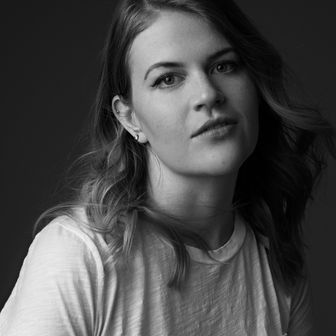
No sooner had the website Babe.net published the detailed, graphic story of an anonymous young woman who claimed comedian Aziz Ansari pressured her to have sex after the pair went on a date, than it felt like half the internet erupted with a take. Some praised the woman, whom Babe referred to as Grace, for sharing her story; others accused her of undermining the #MeToo movement by equating a bad date with sexual assault. The conversation about #MeToo has grown and changed shape over the last few months, and the outpouring of thoughtful responses to Grace’s story illustrate how complex it has become. And that’s good. If we want to truly reshape our culture’s views about sex and power and assault, we can’t just look at the work place; we need to examine all of the different contexts in which those forces clash and co-exist. Here are some of the writers who have done the best job of untangling all of the issues at play.
Aziz Ansari, ‘Cat Person,’ and the #MeToo Backlash - Anna Silman
After the Babe report came out, some people said Ansari would be “destroyed.” The Cut’s own Anna Silman refutes this, and says that we should see stories like this as an opportunity to expand the conversation about sexual assault, and add greater nuance.
Instead of thinking of stories like these as “destroying” a man’s life, let’s think of them as sparks that ignite a necessary conversation, for both the women that think “I’ve been there” and the men who look back on their past behavior and feel “surprised and concerned” that everything wasn’t really okay all along.
Babe, What Are You Doing? - Julianne Escobedo Shepherd
In her essay for Jezebel, Julianne Escobedo Shepherd argues that Babe’s flawed reporting of Grace’s story has distracted from the more pressing questions about dangerous, gendered dating norms.
The areas in the account that feel clear to some readers and fogged to others are worthy of serious and good-faith interrogation, and yet just two days on, we are having arguments about bad faith thinkpieces and grotesque attempts to belittle Grace’s experience, rather than actually talking about the socially ingrained cultural and political disparity that shows itself in dating scenarios.
The Aziz Ansari debacle proves it’s time for a new sexual revolution - Elizabeth Bruenig
In an op-ed for the Washington Post, columnist Elizabeth Bruenig points out that although previous sexual revolutions tried to remove all of the sacredness and taboos around sex and portray is as just another social interaction, the truth is that sex is different, and we must acknowledge that.
[…] we ought to appreciate that sex is a domain so intimate and personal that more harm can be done than in most social situations, and that given that heightened capacity for harm, we should expect people to operate with greater conscientiousness, concern and care in that domain than in others
This is a conversation about consent - Sarah Marrs
For too long, the conversation around consent has focused on respecting your partner’s “no,” instead of seeking an active, enthusiastic “yes!” argues film critic and entertainment writer Sarah Marrs in her essay for Lainey Gossip.
Men are taught “no means no”, but that is only half the equation. The other half of the equation is “ask for yes”. Don’t just wait for a “no”—because odds are, if it gets that far, the moment has already turned violent and it may well be too late to stop sh*t happening.
The poorly reported Aziz Ansari exposé was a missed opportunity - Jill Filipovic
Like Julianne Escobedo Shepherd at Jezebel, The Guardian’s Jill Filipovic accuses Babe of failing to properly frame what is an important and often-overlooked question about uneven dating dynamics.
The language of “a bad hookup” fails to capture the unequal power dynamics and the deep sense of disorientation and betrayal that comes when someone treats you as a hole rather than a person.
The Aziz Ansari story is ordinary. That’s why we have to talk about it. - Anna North
In her essay for Vox, Anna North explains that Ansari’s alleged behavior is entirely unsurprising in a culture where men are taught they have to badger and pressure women into sex.
Despite a growing conversation around enthusiastic consent, most everything in American culture still tells men that they should be pushing for as much sex as possible at all times. The idea that men have more sexual desire than women still goes unchallenged, leading too many men to believe that a lukewarm yes is all they’re ever going to get, because women don’t like sex that much anyway.
Aziz, We Tried to Warn You - Lindy West
The idea of affirmative consent isn’t new, Lindy West says in her new column for the New York Times, most men just haven’t been paying attention.
Nuanced conversations about consent and gendered socialization have been happening every single day that Aziz Ansari has spent as a living, sentient human on this earth. The reason they feel foreign to so many men is that so many men never felt like they needed to listen. Rape is a women’s issue, right? Men don’t major in women’s studies.
Why Sex That’s Consensual Can Still Be Bad. And Why We’re Not Talking About It. - Rebecca Traister
Although it was published back in 2015, Rebecca Traister’s essay for the Cut about how consensual sex can still be bad, because men and women’s pleasure is not prioritized equally, remains one of the most relevant pieces of writing for this current cultural moment.
Pleasure! Women want pleasure, or at least an equal shot at it. That doesn’t mean some prim quid-pro-quo sexual chore-chart. No one’s saying that sex can’t be complicated and perverse, its pleasures reliant — for some — on riffing on old power imbalances. But its complications can and should be mutually borne, offering comparable degrees of self-determination and satisfaction to women and men.





